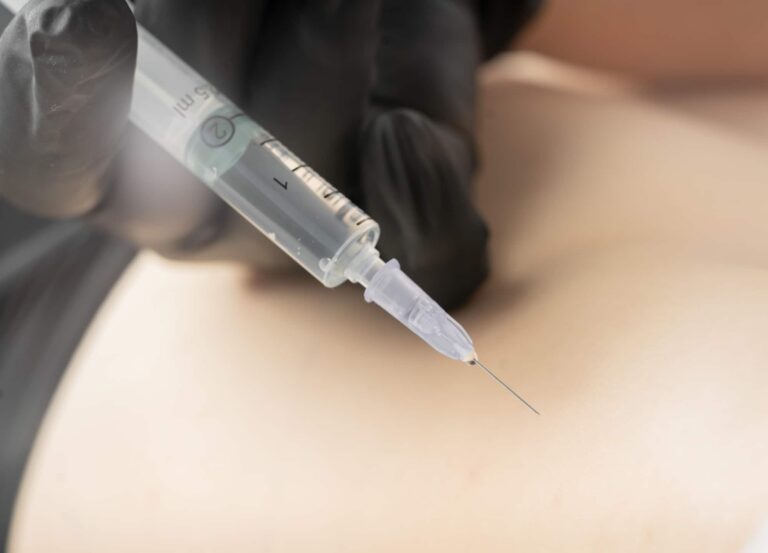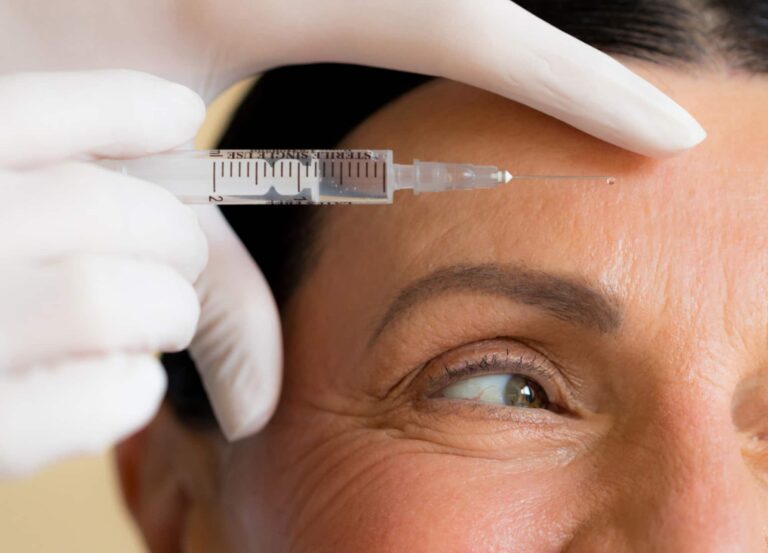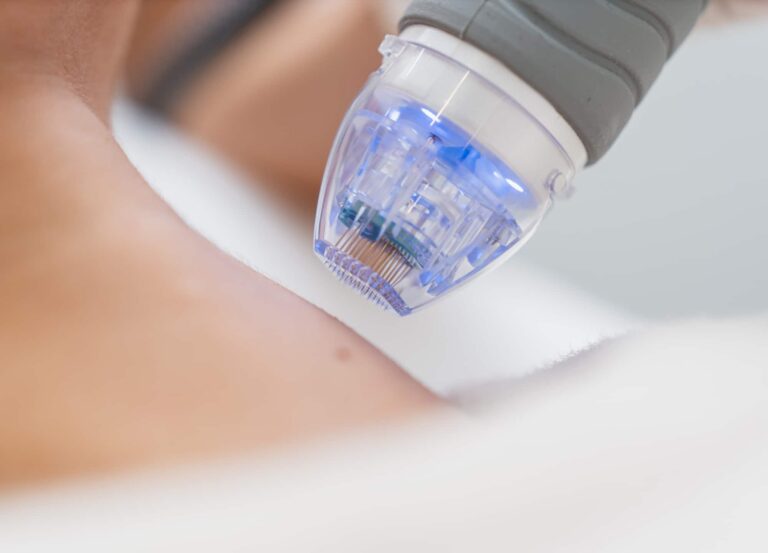This story is part of our RealSelf Verified campaign to offer consumers greater transparency into provider qualifications and help them find trusted, patient-friendly professionals. Every doctor or surgeon on RealSelf is properly labeled with their primary board certification, to denote their area of medical specialty.
Looking for a plastic surgeon, a dermatologist or perhaps a general practitioner for your whole family? As you research different doctors, you’ll often encounter the term board-certified. Among doctors, board certification is the mark of competency within a specialty. For patients, having a bit of background on the process will help you choose a doctor whose specialty is relevant to the procedure you’re seeking with greater confidence. Here’s what you need to know.
What is board certification (across all specialties)?
A board-certified doctor is one who has been evaluated and meets the stringent requirements of a recognized medical board in their area of specialty, whether that’s dermatology, anesthesiology, pediatrics or even preventive medicine. “Board certification is a set of standards,” says Dr. Maria LoTempio, a plastic surgeon in New York City. “Residents who graduate need to subscribe to those standards in order to be recognized as proficient in their choice of specialty.” These standards include a grasp of clinical knowledge, high standards of care and the good judgment to handle complications in a manner that complies with the board’s guidelines.
In other words, board certification is the optional “cherry on top” of medical education—and not all doctors have it. “Anybody who has gone to medical school can put an MD after their name, but board certification happens later,” explains Dr. Lily Lee, a plastic surgeon in Pasadena, California. “I’ve done the requisite training, which was grueling and long. Certification gives you a certain backing. It’s a point of pride.”
Board certification doesn’t automatically mean that a physician is “better” than others, but it does signify that their proficiency has been evaluated and approved by experts in their field. “As with any other profession, there are going to be people [who] are better at things, those who are average and those who might not be so great,” Dr. LoTempio says. But, she says, noting the rigorous certification process, “we know that board certification levels the field. Going to a board-certified physician in the relevant speciality means going to somebody who has the knowledge, the skill base and the standards to give the best possible treatment.”
Related: 3 Tips on How to Choose the Best Surgeon for Your Procedure That No One’s Telling You
Why board certification matters in plastic surgery
In plastic and cosmetic surgery in particular, the term board certification often pops up as a must-check criterion before booking with a provider. Many research guides recommend this because there is no regulation that requires a doctor to practice within the specialty they’re trained in and surgery is a particularly high-stakes decision. You may assume that only plastic surgeons or facial plastic surgeons who have extensive training and experience in, say, rhinoplasty are allowed to perform the procedure—but any licensed medical doctor can legally reshape your nose, even if they barely have any experience doing so. “[In New York State,] anyone who has their medical license can practice any type of medicine and any type of surgery,” Dr. LoTempio says. “That person could do heart surgery, brain surgery or become a licensed psychiatrist.” Surprised? You’re not the only one. According to a recent RealSelf survey, more than 8 out of 10 women in the United States don’t know that a medical professional who performs plastic surgery (whether reconstructive or cosmetic) does not have to be board-certified in plastic surgery.
That’s why knowing what specialty a doctor is board-certified in is so valuable: it allows patients to know at a glance that a physician not only has trained and specializes in a particular field but also has proven expertise within it. “Plastic surgery has several components, such as craniofacial, hand, cosmetic and reconstruction,” Dr. LoTempio says of her field. “Each of those areas within our scope is to be tested [through board certification].” So while a surgeon who is not board-certified in plastic surgery can legally perform breast augmentation, it can be tricky for patients to know whether the provider’s experience is relevant to the procedure they are seeking.
[Editor’s Note: RealSelf Verified providers must clearly state their specialty and primary board certification on their RealSelf profile so that patients can clearly see the area of their training.]
It’s a growing problem, as evidenced by the number of surgical mishaps involving doctors who are inexperienced in the area they’re practicing in. While board certification does not guarantee any sort of outcome, patients can feel more confident when they know their doctor has been through rigorous evaluation channels.
Speaking of which…
Becoming board-certified in plastic surgery is a process
A long and challenging one, that is. After graduating from medical school, successfully completing specialist training and beginning their own practice, doctors may choose to seek certification. At this point, a doctor is “board eligible,” which simply means that a physician has met the requirements for admission to a board but hasn’t yet passed the exams. “When you finish your residency training and plastic surgery, you are board eligible, but that doesn’t mean you’re certified,” says Dr. Karol A. Gutowksi, a plastic surgeon in Chicago.
The certification process involves a two-part exam and is, to put it mildly, rigorous. Take plastic surgery, for example. “The written section must be passed in order to progress to the oral exam,” says Dr. Scott Sattler, a plastic surgeon in Seattle. He calls the written exam—all 350 questions of it—”mildly” stressful, but says the oral board exam is on another level. “Every plastic surgeon that I know recalls their oral board exam with a mixture of terror and delight upon passing it,” he says.
Months after the written exam, the two-day oral exam takes place. For that, doctors must prepare five to seven of their own cases, including chart documentation and before and after photographs. The cases are then presented to a panel of senior plastic surgeons, who evaluate every detail. “The examinee is expected to field a stressful barrage of legal-deposition-style questions,” Dr. Sattler says. “The decision making behind each surgery and the handling of surgical complications must be defended by the examinee.” Additionally, doctors are shown a series of unknown, challenging cases and asked to explain how they would proceed.
If it sounds like a lot of pressure, that’s because it is. Dr. Gutowski, who has served as a board examiner in the past, estimates a 16–25% failure rate. “It’s a grueling process,” he acknowledges. Even when doctors pass and achieve board certification, the process is never truly over, as they’ll need to pursue Maintenance of Certification—which ensures continuous professional development and professionalism.
Related: 8 Things Reputable Doctors Never Do
However, not all boards are equal
To complicate matters, there’s no standardization among medical boards, which means some hold doctors to a more rigorous standard than others. All the doctors quoted in this story agree that the American Board of Medical Specialties (ABMS), with its 24 member boards, is the gold-standard organization. “Those boards set the standards for training, qualifications, employment and reimbursement for hospitals,” says Dr. LoTempio. “They’re very well-researched, and there are good explanations [for] why these particular professions have these particular boards.” In plastic surgery in particular, the ABMS recognizes only the American Board of Plastic Surgery.
As for the rest? That’s where it gets tricky for consumers to decipher. While there are some boards that are not members of the ABMS but have equivalent standards, there are also plenty that fall short. [Editor’s Note: RealSelf’s Standards for Doctors and Other Providers clearly outlines the boards we recognize across a number of surgical and nonsurgical specialties, in the United States and abroad.]
“All boards are not created equal,” says Dr. Gutowski. “The majority of ‘boards’ are not [accredited or recognized].” He recalls a former patient who sought corrective treatment for poorly done breast augmentation. “She told me the doctor’s name and said that he was a founding member of the American Board of Breast Augmentation Surgery,” he says. The problem? It wasn’t a real board. “That ‘board’ was probably him and a couple guys in a bar who put it together,” Dr. Gutowski laments.
Not everyone who wants to be a plastic surgeon manages to be accepted into a plastic surgery residency, notes Dr. LoTempio. “[There are boards] that are not recognized by the American Board of Medical Specialties,” she says. “[They] don’t have the same rigor.”
This is an especially crucial point of difference in case of complications, as hospitals often require board certification to grant doctors privileges and access. “[Qualified] doctors need to be allowed to do the same procedure in a hospital, because anybody can do anything in their office,” Dr. Gutowski says. “If you try to do plastic surgery in a hospital and you’re not a plastic surgeon, [the hospital] won’t let you. There’s a reason for that.”
Again, being board-certified isn’t a guarantee of a positive outcome. “Even board-certified plastic surgeons will have complications. It’s just part of the field of medicine and surgery,” says Dr. LoTempio. “But for doctors who aren’t experienced, if they run into a complication, they cannot handle it—because they are not trained to handle it.”
How to find a board-certified doctor
The good news is that the vast majority of physicians, from pediatricians to ophthalmologists, are board-certified—and after earning their certification, they’re understandably proud to talk about it. So don’t be shy: ask a physician questions about why they’ve pursued certification (or haven’t) and get clarity on what specialty they’re certified in.
Use board certification as a tool to find the best doctor for your needs. “Surgeons [who are not trained in plastic surgery] do not possess the breadth and depth of experience in plastic surgery that a board-certified plastic surgeon has,” says Dr. Sattler. “Why settle for less?”











